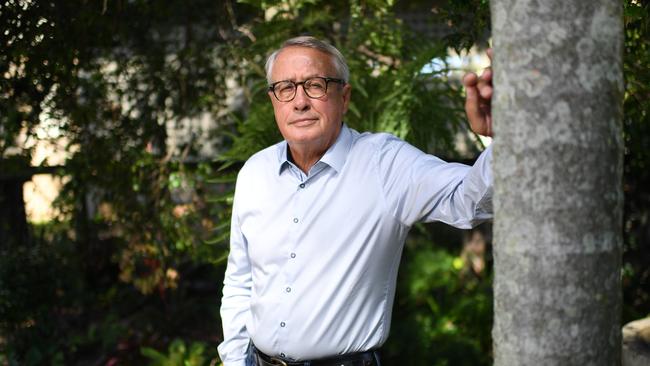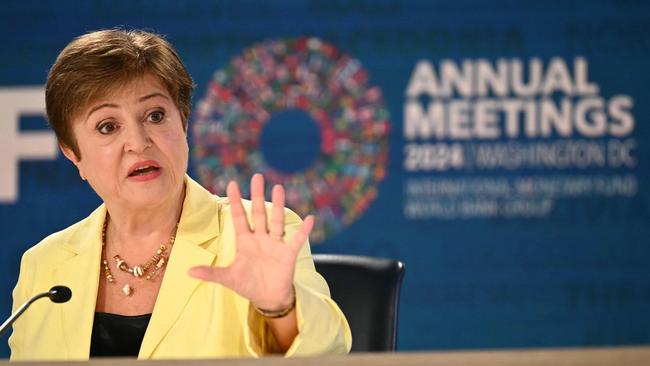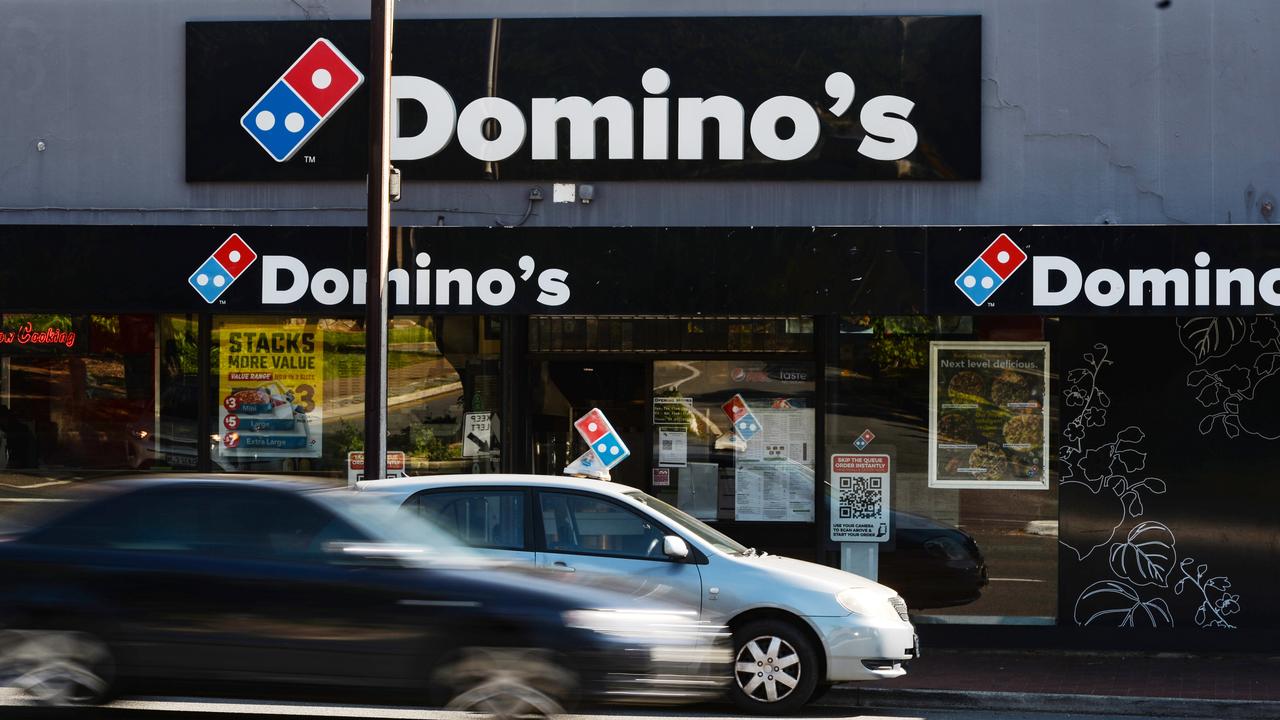The IMF has joined our regulators questioning super fund operations and it’s time for an inquiry
Australian regulators and the International Monetary Fund want more disclosure from big super but buoyant markets shield them from any serious examination. It’s time for an inquiry.

Business
Don't miss out on the headlines from Business. Followed categories will be added to My News.
They say you don’t know who’s been swimming naked until the tide goes out.
Just now it looks like your super fund is doing well. But don’t be fooled: Australia’s major super funds are heading for big trouble.
We already know they have it easy because the money never stops flowing in the front door thanks to compulsory super. But it’s the rising tide of concerns stretching from how they invest your savings to how they behave behind the scenes that is raising an alarm.
There has never been a time when the super funds that dominate our system are facing so much criticism on so many fronts. Super fund members might have nothing to say, but some of the most powerful forces in the markets are making it clear they are worried.
The RBA is concerned about their concentration of risk in major banks, APRA is concerned about how they live it up on members’ money or, as they regulator politely puts it, how they explain “questionable expenditure”.
And most striking of all, the International Monetary Fund – no less – is concerned about how they manage risk in the opaque area of illiquid assets, better known as unlisted investments.
Luckily for the funds, their financial performance is steaming along. The latest the Chant West numbers show funds bringing in median growth of 8.6 per cent for the first nine months of the year – that’s better than the long-term 12-month average return of 7.6 per cent. In other words, any more positive returns during this quarter would be icing on the cake.
So we are heading for a bumper year. But this is how it goes in a bull market – the reality is that a super fund manager could be third rate in a bull market and still pull in what looks like a first-rate return.
As regulatory authorities at all levels voice concerns, the funds themselves are effectively shielded by these above-average returns.
With buoyant returns from equally buoyant markets, the funds will say they are answerable to their own investors – but the majority of those investors are disengaged and inside default funds where they don’t ask questions. In fact, the members are so disengaged that a fund such as ART can move 1.4 million members from a “balanced” setting to a “high growth” setting linked with riskier assets and there is barely a squeak.
Politically, the funds have never been in such a strong position. As their total funds under management moves towards $3 trillion, an ALP government is in power, with its links to unions. Just like the funds themselves. Former ALP stars dot the landscape of the larger industry funds, with one-time federal treasurer Wayne Swan, the chair of Cbus, the outstanding example.

And on that subject, it’s only a matter of time before another issue for regulators will be the cronyism inside the industry, typified in how boards get put together.
The major funds will also crow about how Australia has the best retirement system in the world. But this is not true. Just this month the nation lost its ranking from the Mercer group as the best retirement system in Asia to Singapore.
At the same time, we came sixth in the world, and that was down from fifth a year earlier.
Meanwhile, on the other side of super, the self-managed super fund sector is being hampered at every turn.
At first glance it sounds like fund manager Geoff Wilson was over-egging it when he recently told The Australian the SMSF industry was now at risk over the new $3m super tax.
“If you want to destroy SMSFs, this is how you do it,” Wilson said.
But the details of that new tax – the inclusion of unrealised gains, the refusal to offer inflation indexation – does signal a deeper malaise. The vast majority of changes in recent years inside super have been in favour of big funds while making SMSFs less attractive.
No wonder opposition finance spokesman Angus Taylor set tongues wagging at a recent industry speech when he raised the idea of US-style 401k plans in Australia. The idea has immediately been shot down by industry incumbents worried it would lead to the end of compulsory super – but the wider idea of aligning our SMSF concept to more incentivised arrangements is well worth considering.
Big super is too big too fail. In fact, it’s too big to have local and global authorities openly concerned about how it all works and a government that turns a blind eye. It’s time for a full review.
James Kirby presents the twice-weekly Money Puzzle podcast
More Coverage
Originally published as The IMF has joined our regulators questioning super fund operations and it’s time for an inquiry





